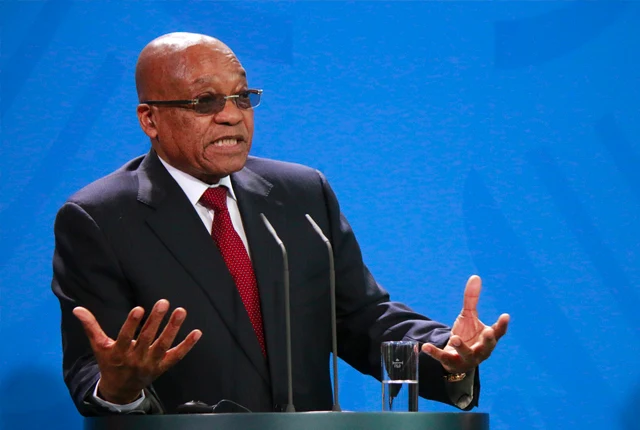Zuma considers opening land-claims dating back to the 1800s
By News24WireMarch 3, 2016

Should the 1913 cut-off date for land claims be changed to the 1800s?
President Jacob Zuma raised the question as he opened the National House of Traditional Leaders in Cape Town on Thursday.
“The very law that we have today to claim is lopsided against the black people. It is very difficult to prove that the land belonged to the ancestors and very easy to say we can’t have the land. That’s how the law is.”
“Was the decision to make 1913 the cut-off date correct? Perhaps yes. But was the land taken in 1913?
Most of the land was taken in the 1800s. Very little land was taken after 1913. This was when the colonialisation of South Africa was consolidated, he said.
He added later that he did not care if people called him names over his statements.
Zuma said that the 1913 Native Land Act, which banned blacks from buying or renting land, was merely about white colonialists shoring up whatever fertile land they had not yet claimed for themselves.
“I could forgive the period before [the 1800s]. It would be reasonable,” he said to murmurs of approval from the royalty and high chiefs assembled before him. “The dispossession of land is the source of the poverty and inequality which have become the ugly hallmark of our nation and an impediment to the future of shared prosperity.”
He quoted former ANC secretary general Sol Plaatje, who wrote that when the Land Act came into force, black men went to sleep owning land, and woke up being worse off than slaves.
Zuma said: “I believe as a son of a black man, and a black man… that we need to shift that cut-off date. But we need to find a reasonable way of addressing the issue. Within the Constitution, within the law. But look at the facts. Where do these people in informal settlements come from? Where is their land? Is it a lie that their land was taken?”
Souh Africa reopened its land claims process in 2014. It would run until June 2019. Every week, new claims were gazetted. On February 23, the National Assembly passed amendments to the Land Expropriation Act. They make matters clearer, including the administrative processes involved and the land owner’s rights.
Zuma’s comments come at the same time as some student organisations tear down symbols of colonial era lawmakers and soldiers and tell white people that their forefathers stole land in South Africa.
The EFF has also made land redistribution one of its top priorities.
In the National Assembly on Tuesday, FF Plus leader Pieter Groenewald said Zuma’s comments about land, which he made at the ANC’s birthday celebration in Rustenburg in January, were against nation building, and racist.
Groenewald reacted when ANC Chief Whip Stone Sizani stood up to say that the land was taken at the barrel of a gun.
Zuma said last year he urged traditional leaders to join efforts in claiming land, rather than lodging competing claims. He said he looked forward to debating his address in Tshwane on March 22.
